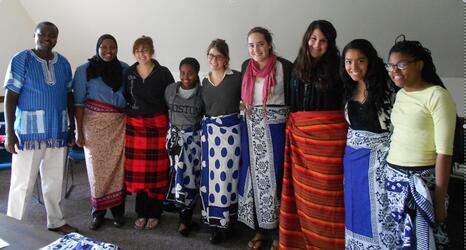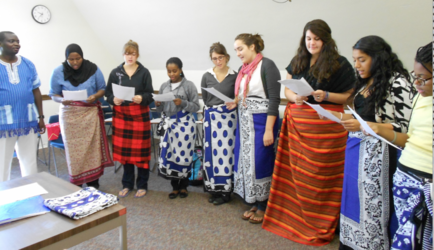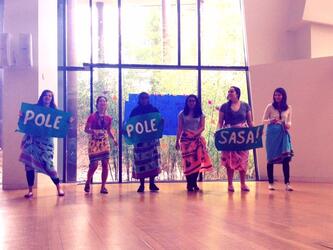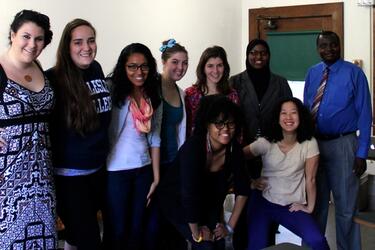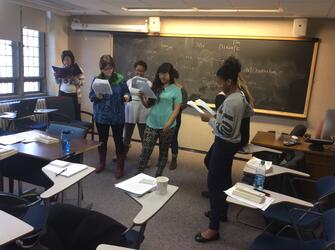Please note that Swahili will not be offered during the 2021-2022 academic year.
Habari za asubuhi? How are you this morning?
Welcome to Swahili at Wellesley!
Swahili, commonly referred to by native speakers as Kiswahili, is one of the major languages spoken in Africa. It is spoken by about 150 million people in eastern and central Africa. It is the national and official language of Kenya, Tanzania, and Uganda, and one of the four national languages of the Democratic Republic of Congo. Other countries where Swahili is spoken include Rwanda, Burundi, northern Mozambique, northern Zambia, Malawi and southern Somalia among other places. Swahili is a thriving and rapidly growing language.
People who speak Swahili as their first language are found along the East African coast, stretching from southern Somalia to the border between Tanzania and Mozambique and the offshore islands of Lamu, Zanzibar, Pemba, the Comoros, and the northwestern part of Madagascar. Most of the other speakers speak Swahili in addition to their other ethnic languages. However a growing number of people speak Swahili as a first language in major urban centers.
Swahili is the most widely taught language in academic institutions both in Africa and the rest of the world. People learn Swahili for various reasons. For example, many American institutions of higher learning require students to learn a foreign language to fulfill graduation requirements and Swahili fulfils this requirement. Individuals with academic and research interests in East and central Africa find Swahili a useful tool in the field.
From archaeologists digging for fossils in Great Rift Valley, to linguists studying African languages, and researchers find Swahili invaluable in their work. Yet others study Swahili in order to participate in study aboard programs in East Africa. Given the multiplicity of languages spoken in East and central Africa, researchers find the knowledge of Swahili important especially because they are able to communicate with speakers of other languages through the region’s lingua franca. Swahili is the lingua franca of most of East and Central Africa.
Students who have studied Swahili and other languages say Swahili is technical but easier to learn as compared to many of the other world languages.


